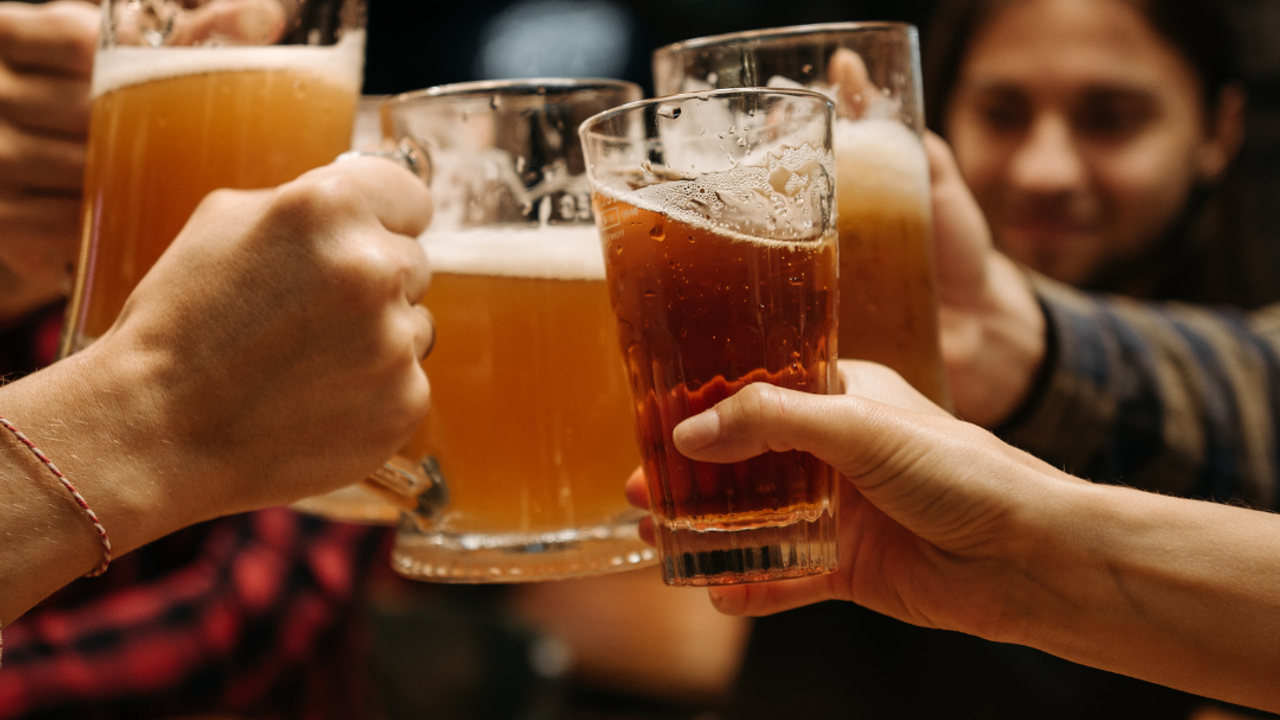Alcohol and performance: 8 ways drinking negatively affects your body
Sep 01, 2022
You probably know that when it comes to drinking, moderation is key. But it’s important to understand how alcohol actually works within our bodies so we can make conscious decisions about its consumption.
Over the past decade, more research has come out about this and, if you enjoy a cold one, you’ll be happy to hear that it’s not all bad news. Whether you're an athlete training for a big game or just someone wanting to live a healthier lifestyle, knowing your limits with alcohol and setting boundaries is crucial.
Understanding Alcohol’s Effects
Nearly 70% of people over the age of 18 in most industrialized areas drink alcohol. While there's nothing wrong with enjoying a spirit from time to time, consuming more than just a few servings a week has a negative impact on health.
Is It Worth It? Here's Some Food for Thought
- Initial impairment - Alcohol compromises our motor skills, increasing the risk of injury. For athletes, this is definitely something to keep in mind if you are training and working toward specific fitness goals.
- Weight gain - Many alcoholic beverages are high in calories and sugar, leading to weight gain. One beer every night adds more than 1,000 calories per week, resulting in an additional 15 pounds of belly fat per year.
- Inhibits muscle growth - Alcohol also impairs the body’s ability to build muscle.
- Disturbs digestion and gut health - Alcohol impacts our digestive systems, potentially leading to conditions like IBS, liver disease, and pancreatitis.
- Blocks nutrients - Alcohol inhibits the amount of nutrients that our bodies receive.
- Disrupts hormones - For men, alcohol lowers testosterone production. For women, drinking, even “light” drinking can alter the reproductive system and increases risk of breast cancer.
- Disturbs sleep - Alcohol interrupts sleep cycles, affecting out bodies' ability to recover.
- Causes dehydration - Alcohol increases urinary output, leading to dehydration.
Understanding Hangovers
Yes, hangovers are partly the result of the poor food choices, disturbed sleep, and dehydration mentioned above, but did you know that hangovers are actually also our bodies responding to a withdrawal from alcohol?
Are There Any Benefits to Drinking?
While they’re heavily debated, some scientists over the years have studied the benefits of alcohol. The truth is, these studies mostly show that benefits like stress reduction have been found when consuming very modest quantities. If you decide to drink, consider your options. Hydration is also critical when drinking.
The Bottom Line
If you enjoy drinking and are medically able, it’s okay to have a drink from time to time. However, it’s important that you understand how alcohol works within your body and the role that it plays in the “bigger picture.”
**This is not medical advice. Consult with a doctor for personalized medical advice.**
